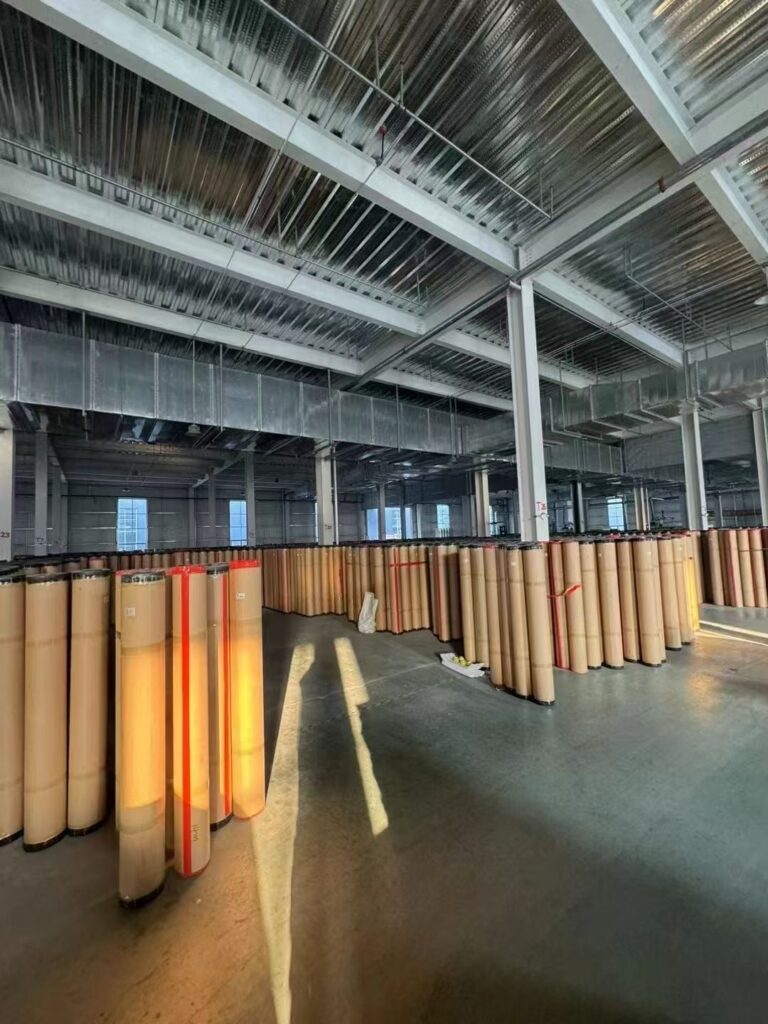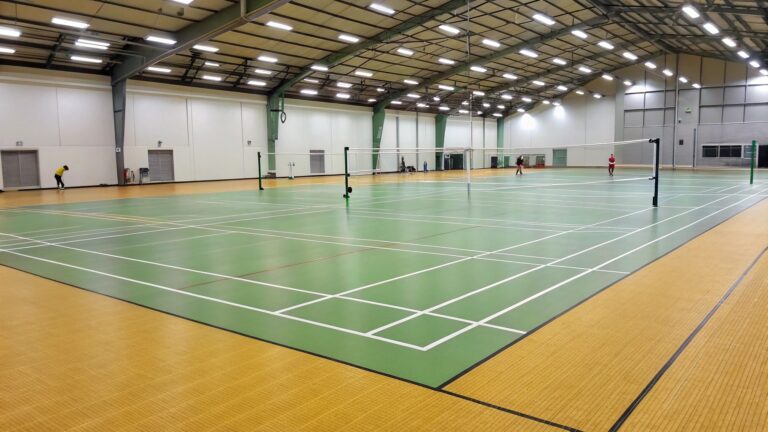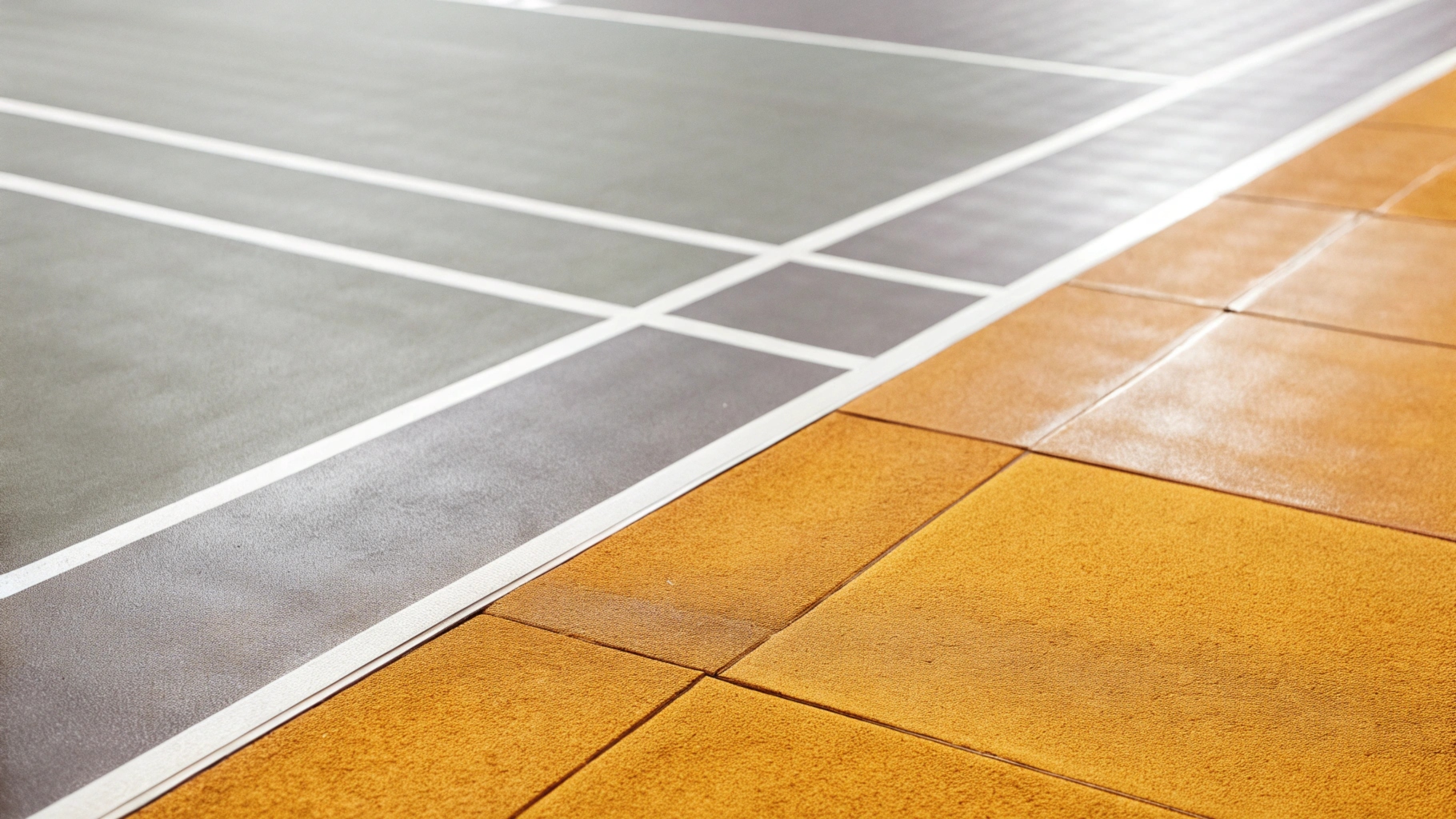
When it comes to badminton courts1, safety and durability start with the flooring. I’ve seen too many facilities suffer from poor choices that lead to injuries or high maintenance costs. Let me guide you to make the right decision.
Choose PVC flooring for its unmatched durability, shock absorption, and anti-slip properties. With proper care and compliance with safety standards, you’ll create a court that lasts and protects your players.
Let’s dive deeper into what you need to know to make the best choice.
Which flooring is best for an indoor badminton court?
This is a question I get a lot from my clients. Picking the right flooring material can make or break your badminton court.
PVC sports flooring is ideal for indoor badminton courts due to its durability, excellent grip, and shock-absorbing features. It ensures player safety and enhances performance while meeting professional standards.
Why do I recommend PVC sports flooring?
From years of experience in the industry, I’ve found PVC sports flooring to be the best choice for most clients. Here’s why:
Benefits of PVC Sports Flooring
| Feature | Why It Matters |
|---|---|
| Shock absorption | Prevents injuries by softening the impact of jumps and movements. |
| Anti-slip surface | Ensures safe gameplay even during fast, dynamic movements. |
| Durability | Withstands heavy use, perfect for schools, clubs, or tournaments. |
| Easy maintenance | Saves time and money in the long run. |
| Compliance standards | Meets regulations, including those set by the BWF. |
Some of my clients still consider wooden floors, but I always caution them about the higher maintenance costs and the impact of humidity. PVC is simply more practical for long-term use.
Is wooden flooring ever the right choice?
If you’re hosting professional tournaments and want the classic look of a wooden floor, it can work. But be prepared for the upkeep. In most cases, PVC gives you the same level of performance with far less hassle.
How to maintain a badminton court?
One of the most common concerns I hear from clients is about keeping their courts in top condition. I always stress that regular maintenance is key.
Maintain your badminton court by daily cleaning, inspecting for damages, and periodic polishing. Avoid harsh chemicals and control indoor temperature to keep the flooring in top shape.
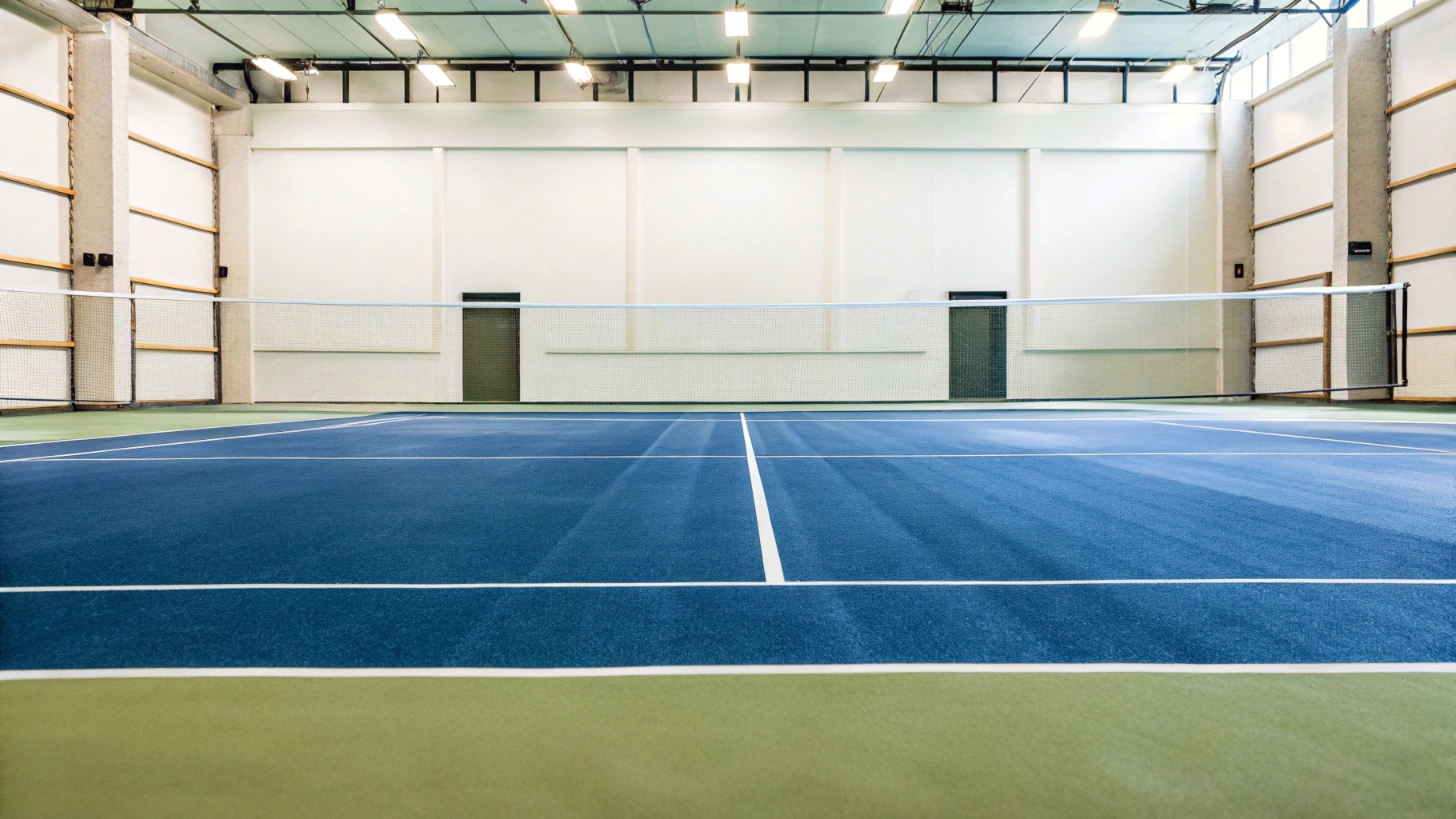
Practical steps I recommend for maintaining your court
1. Daily Cleaning
Use a broom or vacuum to remove debris, then mop with a gentle cleaning solution. This keeps the surface safe and looking fresh.
2. Regular Inspections
I advise checking for signs of wear monthly, especially around seams or high-traffic areas.
3. Long-Term Care
For wooden courts, sanding and resealing are necessary. For PVC, a light polish every few months will restore its shine.
| Common Mistakes | How to Avoid Them |
|---|---|
| Using harsh cleaners | Stick to pH-neutral products to avoid damaging the surface. |
| Ignoring humidity | PVC is resilient, but wooden floors can warp if not monitored. |
Whenever I’ve seen courts fail prematurely, it’s often due to skipping these basics. Investing a little time in maintenance saves you major headaches down the line.
What is the floor surface of a badminton court?
The right floor surface ensures both safety and performance. Based on my experience, a good badminton floor strikes the right balance between grip and impact protection.
Badminton courts typically feature PVC or wooden surfaces, offering anti-slip grip and shock absorption. These materials are designed for player safety and optimal gameplay.
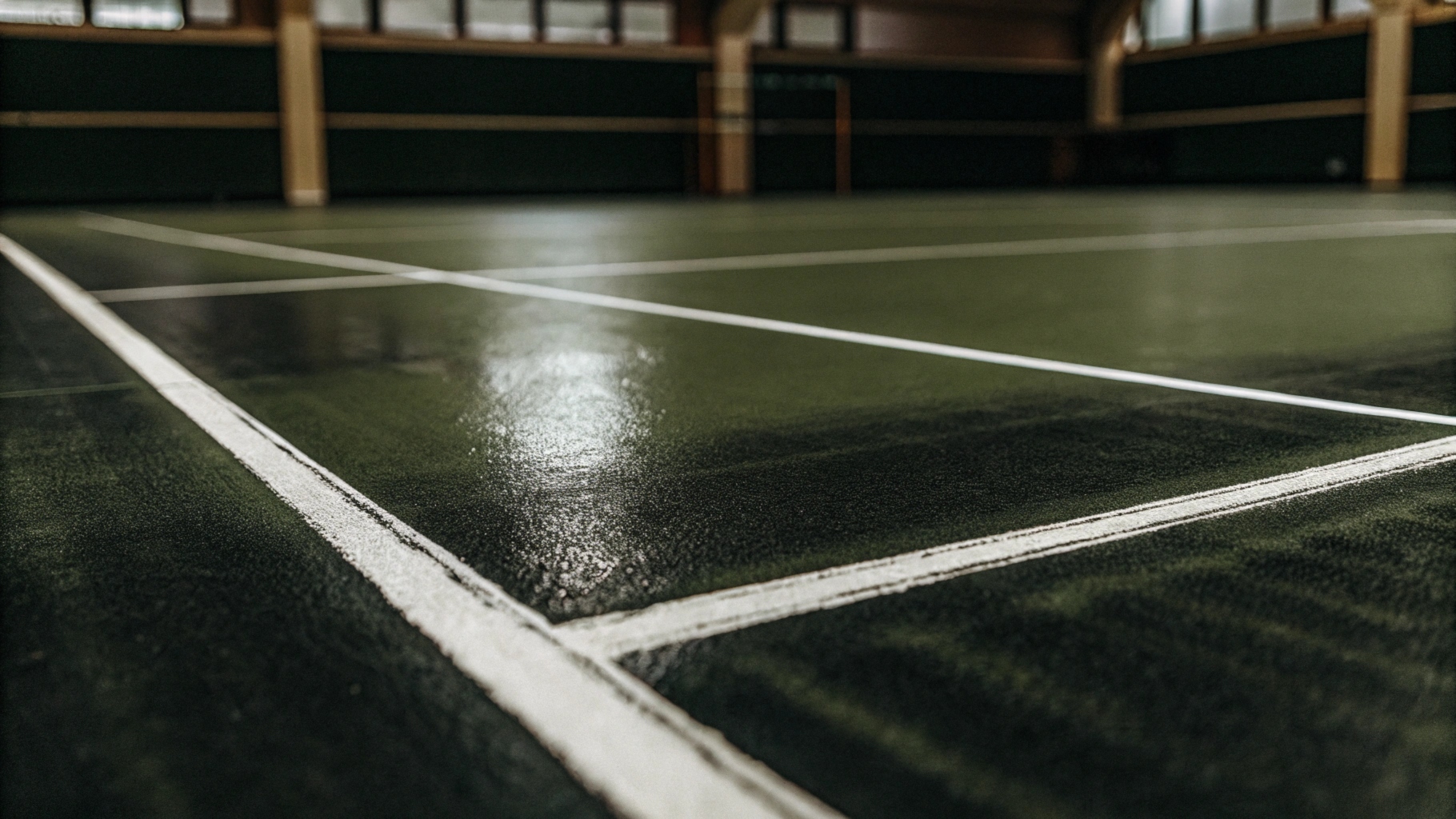
What makes a good floor surface?
PVC Flooring
I always recommend PVC because it’s versatile and cost-effective. Its foam backing provides shock absorption, while the top layer ensures a firm grip for players.
Wooden Flooring
Wood floors are visually appealing, but they demand controlled environments to prevent warping and wear.
| Feature Comparison | PVC Flooring | Wooden Flooring |
|---|---|---|
| Cost | Affordable and easy to maintain | Higher upfront and upkeep |
| Durability | Resilient in all environments | Sensitive to humidity |
| Aesthetic Appeal | Customizable designs | Traditional, polished look |
When clients ask me what to choose, I often recommend PVC unless they have specific reasons to opt for wood, such as hosting international tournaments.
What surface should badminton be played on?
The surface you choose directly impacts player safety and performance. As someone who’s worked with many facility managers, I can tell you that cutting corners here isn’t worth it.
Badminton should be played on anti-slip, shock-absorbing surfaces like PVC or wooden flooring. These materials comply with international standards and minimize injuries.
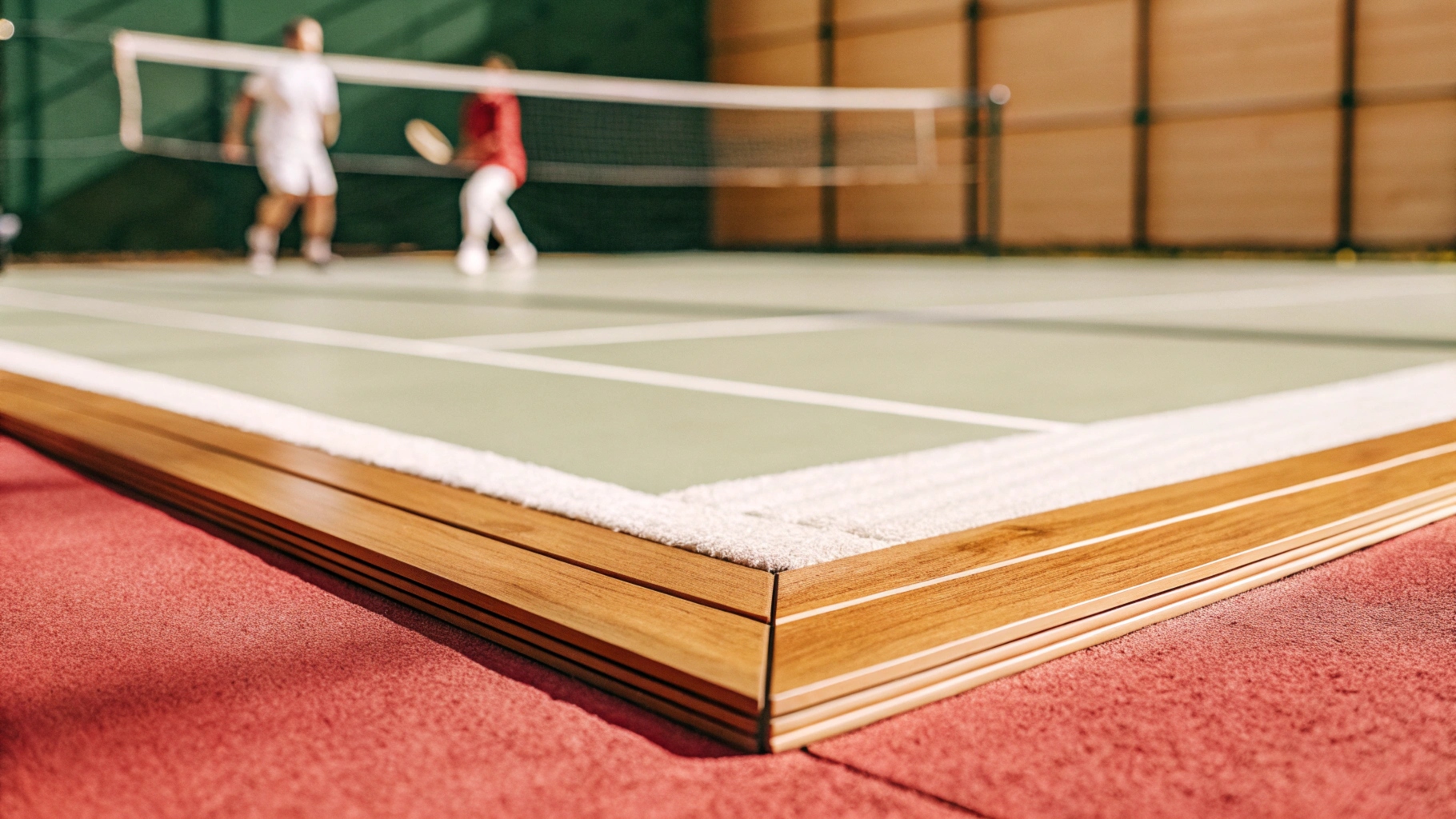
Meeting International Standards
The Badminton World Federation (BWF) sets strict guidelines for court surfaces. I ensure the products I provide align with these standards, offering:
- Excellent traction for fast-paced games.
- Shock absorption to reduce strain on players.
- Durable materials that last through intense use.
Why I emphasize PVC for most clients
PVC offers a balance of cost, performance, and maintenance ease. While wooden floors have their place, PVC is the go-to solution for most facilities, from schools to private clubs.
Conclusion
I’ve worked with countless clients to create safe, durable badminton courts. The right flooring—especially PVC—makes all the difference in player safety, court performance, and long-term costs. Let’s ensure your court stands out for all the right reasons.
-
Learn more about badminton courts and their requirements. ↩

